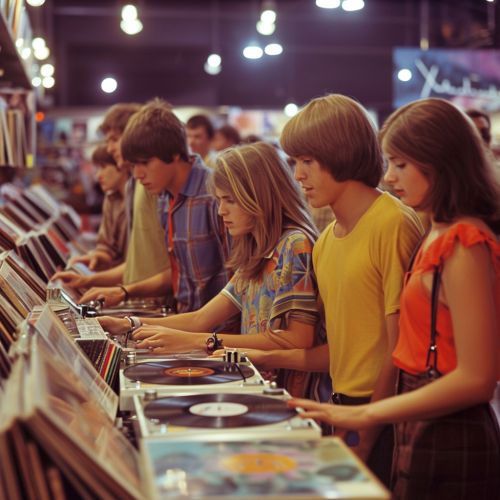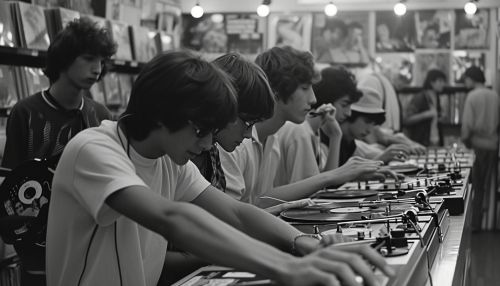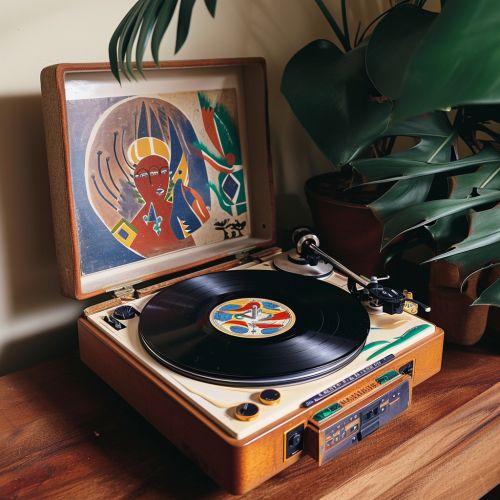Yé-yé
Origins and Development
The Yé-yé movement originated in the early 1960s in France, inspired by the pop and rock music trends emerging from the United States and the United Kingdom. The term "Yé-yé" itself is derived from the English phrase "yeah, yeah", popularized by British beat music bands such as The Beatles and The Rolling Stones. The Yé-yé style was characterized by its youthful, exuberant sound, and its lyrics often reflected the carefree attitudes and concerns of teenagers at the time.


The Yé-yé movement was primarily driven by the advent of radio and television, which allowed for the widespread dissemination of the music. Radio stations such as Europe 1 played a crucial role in promoting Yé-yé music, and television shows like "Salut les copains" became platforms for Yé-yé artists to reach a national audience.
Key Artists and Songs
Among the most notable Yé-yé artists were Françoise Hardy, Serge Gainsbourg, and Johnny Hallyday. Hardy's song "Tous les garçons et les filles" became an international hit, and Gainsbourg's "Poupée de cire, poupée de son" won the Eurovision Song Contest in 1965. Hallyday, often referred to as the "French Elvis", was a major figure in French rock and roll and his Yé-yé style songs were immensely popular.


Influence and Legacy
The Yé-yé movement had a significant impact on the music scene in France and beyond. It helped to establish pop music as a major cultural force and paved the way for future music trends. The movement also played a role in the broader cultural and social changes of the 1960s, reflecting and contributing to the youthful energy and rebellious spirit of the era.
Even after the peak of the Yé-yé movement in the mid-1960s, its influence continued to be felt. Many Yé-yé artists went on to have successful careers in music, and the style has been revived and reinterpreted by numerous artists in the decades since. The Yé-yé movement remains a significant part of French musical history and its legacy can still be seen in the pop music of today.
